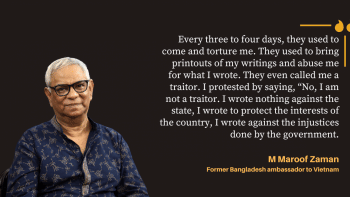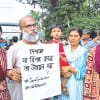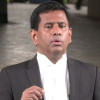The need for a clear charter for the intelligence agencies

That the law enforcement officials including those in the intelligence agencies had dangerously overstepped their jurisdiction and went beyond their charter, if there is any, is a manifest reality. The heart-rending wailings of the victims of enforced disappearance sadly bring to light the arbitrary and predatory activities of a section of public servants. The compounding tragedy is that while the victims' families were complaining and seeking justice for a painfully long time, the government of the day was consistently in denial mode, thus making light a grave human rights violation.
The undeniable facts of enforced disappearance and torture in unauthorised custody like the Aynaghar, now in public view, surely dent our credentials as an orderly and law-bound society. How have we descended into such a deplorable state, and where are the fault lines? Also, what was the apportionment between political executives and the executers on the ground in the wrongdoers' culpability?
It is no secret that intelligence agencies play a leading role in providing political-analytical inputs to the ruling party and its government. However, there are tales of political skulduggery on behalf of successive political regimes. The agencies are known to have undertaken strategic exercises during elections and conduct election forecasts and analysis to oblige the party in power. In doing so, they have become an instrument of partisan politics. The accompanying politicisation or lack of impartiality and objectivity distorted the policy process and damaged the credibility and political legitimacy of the state.
There is credible suspicion that our intelligence agencies lack an acceptable legal framework and a well-honed charter of duties. Consequently, the allegation of its functioning in a thoroughly political manner cannot be brushed aside. We do not have adequate safeguards and constant vigilance against likely misuse of the powers of intelligence personnel. This requirement assumes greater significance since intelligence activities are carried out in secrecy and the average citizen may not be aware that his rights are infringed.
The undeniable facts of enforced disappearance and torture in unauthorised custody like the Aynaghar, now in public view, surely dent our credentials as an orderly and law-bound society. How have we descended into such a deplorable state, and where are the fault lines?
Our intelligence agencies collect a great deal of information about the activities of various political parties and in the process keep a watch over the activities of all persons who oppose the policies of the government in position. Curiously, they do not usually collect information about the party in power. While subversion of the constitution or deliberate disruption of public order through violent means should be matters of concern to the agency, issues like power, politics, factionalism within a political party, and defections must be kept outside the gambit of the tasks of intelligence agencies.
As such, the intelligence agencies should not be the judge of their own operations with regard to the necessity and propriety thereof, nor should they be allowed to operate as politicians' agency or instrument, or degenerate into an institution for controlling the opponents of the ruling party. The agencies must not be engaged in assessing the election prospects of the ruling party and be used as an instrument for political spying either by the government or an individual in the government.
There has to be a charter of duties, putting responsibilities beyond doubt and indicating what is permitted and what is not. The legitimate purpose of intelligence has to be the anticipation of developments that may imperil national interests and security, to enable appropriate action with the imperative that any tendency that equates national interest with the interest of the party in power must be guarded against. Besides, the ruling party must not be allowed to watch the activities of other political parties and even members of its own party.
The catch-all definition of national security must not be used as a cloak to hide abuses. The definition has to exclude from its purview anything that smacks of denial of human rights and basic freedoms. There should be clear and firm guidelines on the limits to the agency's authority, the areas of coverage, the manner of functioning, and the methods they are permitted to use. The heads of agencies must be accountable to the executive and the legislature. They have to be subjected to parliamentary oversight regularly as is done in mature democracies.
A detailed and precisely honed charter for intelligence agencies in consonance with the spirit of the constitution needs to be prepared. These are tall orders, no doubt, but we have to make a start however humble it may be. We will not achieve anything if politicians in our perilously polarised scenario fail to accept each other as contestants and not as enemies.
Muhammad Nurul Huda is former IGP of Bangladesh Police.
Views expressed in this article are the authors' own.
Follow The Daily Star Opinion on Facebook for the latest opinions, commentaries and analyses by experts and professionals. To contribute your article or letter to The Daily Star Opinion, see our guidelines for submission.

 For all latest news, follow The Daily Star's Google News channel.
For all latest news, follow The Daily Star's Google News channel. 











Comments